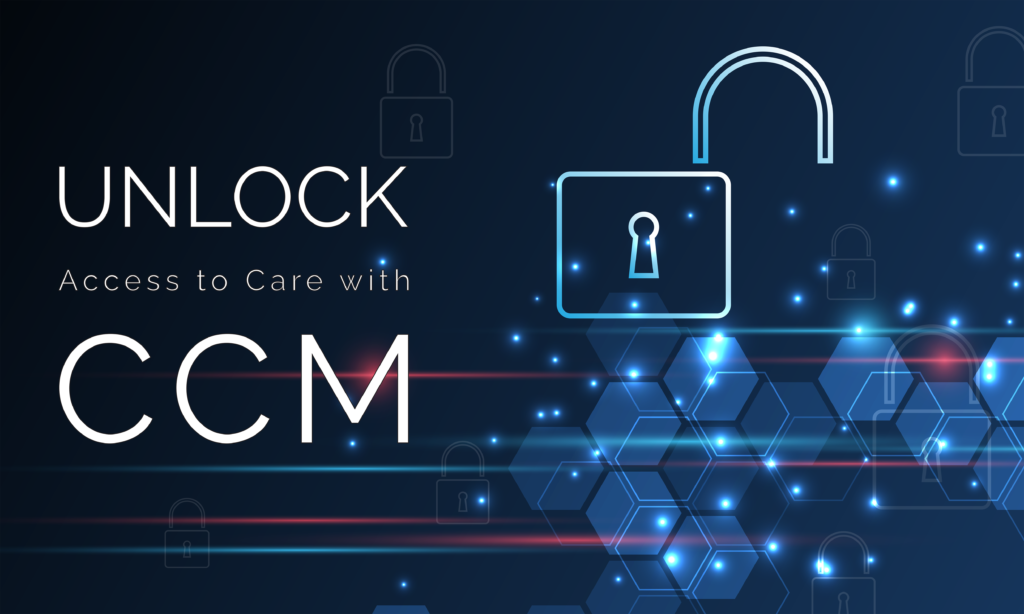Providers should take Chronic Care Management (CCM) seriously if they want their patients to unlock access to a better quality of care. Patients with chronic conditions need close and continuous care to ensure they remain healthy and prevent an escalation.
Yet Medicare’s prevention and coordination codes are underutilized by providers who are not able to capitalize on the benefits CCM brings in terms of patient outcomes and revenues for the practice. CCM is one solution that can markedly improve access to care by harnessing digital technologies to care for patients with two or more chronic conditions who need close monitoring while they are between doctor’s appointments.
Understanding CCM – What Providers Should Know About Chronic Care Management
Chronic care management services are non-face-to-face services provided to Medicare members who have two or more chronic conditions expected to last at least 12 months, or until the death of the patient. It includes a comprehensive care plan listing the patient’s health problems and their goals, other providers they see, medications they take, community services that they have and need, and other vital information that could impact their health. The service also explains the specific care they need and how these will be coordinated.
CCM provides multiple touchpoints in-between office visits to ensure patients comply with their care plans, adhere to their medications, and follow their care instructions. First introduced in 2015, the program gained significant traction during the pandemic as it was able to provide care even as patients opt to stay in their homes and skip their appointments. Through digital technologies, providers receive regular updates and keep their patients on track with their preventive care. It is an effective and cost-efficient solution to manage chronic conditions and the patient’s overall health.
Two-pronged approach to providing care
CCM offers a proactive and preventative approach to providing care with the care team conducting monthly telephonic calls and electronic check-ins with enrolled patients. Medicare requires 20 minutes of non-face-to-face time for every calendar month. The rationale is that clinicians are kept informed of the patient’s health status so their chronic condition will not worsen.
In addition, Medicare also requires 24/7 access to a care hotline that patients can use. Aside from the preventative element, CCM needs to offer extended availability. Having heightened access to care has been proven to reduce ER visits and hospitalizations. Essentially, the value of CCM is that it can extend the reach of care, especially to the most high-risk, high-cost patient population that has long been burdening the healthcare system with its high cost of care.
Providers, patients, and payers have much to gain with CCM. Providers increase cash flow into their bottom line, patients experience better outcomes, and payers reduce healthcare costs.
Challenges to Access Care and Chronic Care Management
CCM is ideally offered by primary care providers who can closely monitor their health status and provide the prevention they need. However, not all patients in need of CCM can access it due to several socio-economic factors or also known as the social determinants of health (SDoH).
These are the top five contributing factors listed in the U.S. Department of Health’s Healthy People 2030.
- Economic stability
- Educational attainment
- Access to quality care
- Neighborhood and environment
- Social and community setting
The biggest barrier to access to care is a patient’s economic status or to put it simply, the lack of access to sufficient health coverage. The U.S. Department of Health says that one in every 10 Americans does not have insurance. These persons will not be able to afford the care that they need as out-of-pocket treatments can be expensive. Transportation costs may also play a part in patients delaying or canceling their appointments.
In the end, patients with little economic stability only seek emergency treatment, which could have been avoided if they received care early on that prevents their condition from escalating. It is not surprising then that more than half of adult ER visits are by patients with chronic conditions (based on CDC data from 2017 to 2019).
It is clear that economic factors significantly affect access to care, which could have been used to prevent a medical crisis. Moreover, the emergency department is not an ideal place for chronic care patients to obtain care, but for some patients, it becomes the last accessible resort compared to making regular appointments with a primary care provider.
Improving Access to Care and Chronic Care Management
Providers need to rethink providing virtual care services like CCM, which is a less expensive way and is readily accessible for the chronically ill. Equally important variables are convenience and availability, which can encourage patients to keep their appointments.
Here’s how you can improve access to care with CCM:
1. Offering support at all times.
Oftentimes, a virtual consultation is dependent on the provider’s convenience and schedule. This could be discouraging to patients because they have to wait days or weeks to book an appointment. With CCM, a clinical team can serve as an extension of the provider’s care team and can provide support at all hours.
In addition, CCM coordinates care among multiple providers and makes it easy for patients to seek treatments from specialists and keep their appointments. Providers can keep track of their patient’s progress and patients find it easy to receive care with the extra help that they are getting.
2. Investing in the right technology
Telehealth is in-demand because it is easy, convenient, and accessible. It is a far cry from face-to-face appointments where patients need to wait long hours and travel a long distance to see their doctors. However, elderly patients may find the technology a barrier to obtaining proper care.
For CCM to work, it should use a technology with no overly intricate app and software platforms that could prove daunting to the less tech-savvy. Providers need to carefully choose the right technology that is user-friendly and highly intuitive. An ideal CCM technology can reach out to patients and not just offer support to them on how to properly use it.
With an efficient solution, your staff can keep a close watch on your patients while keeping the line of communication always open. These are important high touchpoints that could save lives. Hence, a sound CCM solution will also provide different modes of communication like phone calls, SMS messages, direct mail, video, and emails.
3. Providing the best patient experience
Whether you are opting to do a CCM program yourself or outsourcing it to an experienced third-party vendor, the goal should include enhancing the patient experience.
Patients are invested in their care when they feel that their providers are just within reach. Here’s how you can provide a good patient experience:
- Remote check-ins
Check-ins are beneficial to patients when it suits the patient’s schedule. In this way, the needs of the patients are always met because they obtain care when they need it.
- Education and information
Educating patients requires important information about the benefits of CCM and how they can self-manage their conditions. Patients can access vital information through the care team during check-ins.
- Online presence
Prospective patients will be able to understand the services the provider offers if the practice has a website they can look into. Patients also find it reassuring to be able to easily contact their providers when they need to.
- Prescription refills
Many times, patients face insurance barriers or confusing instructions on getting their prescription refills. The provider’s assistance on this crucial aspect of care is one way of ensuring patients are adhering to their medication plan.
With CCM, patients receive continuity of care and clinicians are able to identify gaps in care. It is not a replacement for regular office visits but a powerful complement for it can prevent ER visits and promote better health outcomes.
Partnering with a credible CCM company
Practices interested in starting with CCM will need to invest substantially in setting up the infrastructure, training or hiring personnel, and navigating a new technology along with Medicare’s complex regulations. Providers are unable to participate and see their patients benefit from the service because they simply do not have the resources and the capabilities to manage it. Many practices that have tried to build their own CCM program will only manage to enroll about 10% of the total number of qualified patients.
A practical and profitable solution is to partner with a credible partner that has the experience, mastery, and resources to properly implement a care coordination program like CCM. Providers will be able to save on costs and avoid the pitfalls of increasing overhead.
Working with Ascent Care Partners
ACP offers a turnkey CCM solution that can help practices with enrolling patients and providing them access to the right resources and technologies to start a successful CCM program.
We partner with the following providers:
- Primary Care Providers
- Family Practice Physicians
- Internists
- Gerontologists
- Non-Interventional Cardiologists
- Endocrinologists
- Wound Care Doctors
- and other providers
ACP helps physicians offer a better quality of care that is readily accessible to patients. We also help practices tap a new revenue stream from billable services so they can finally get paid for the services they are already providing.



